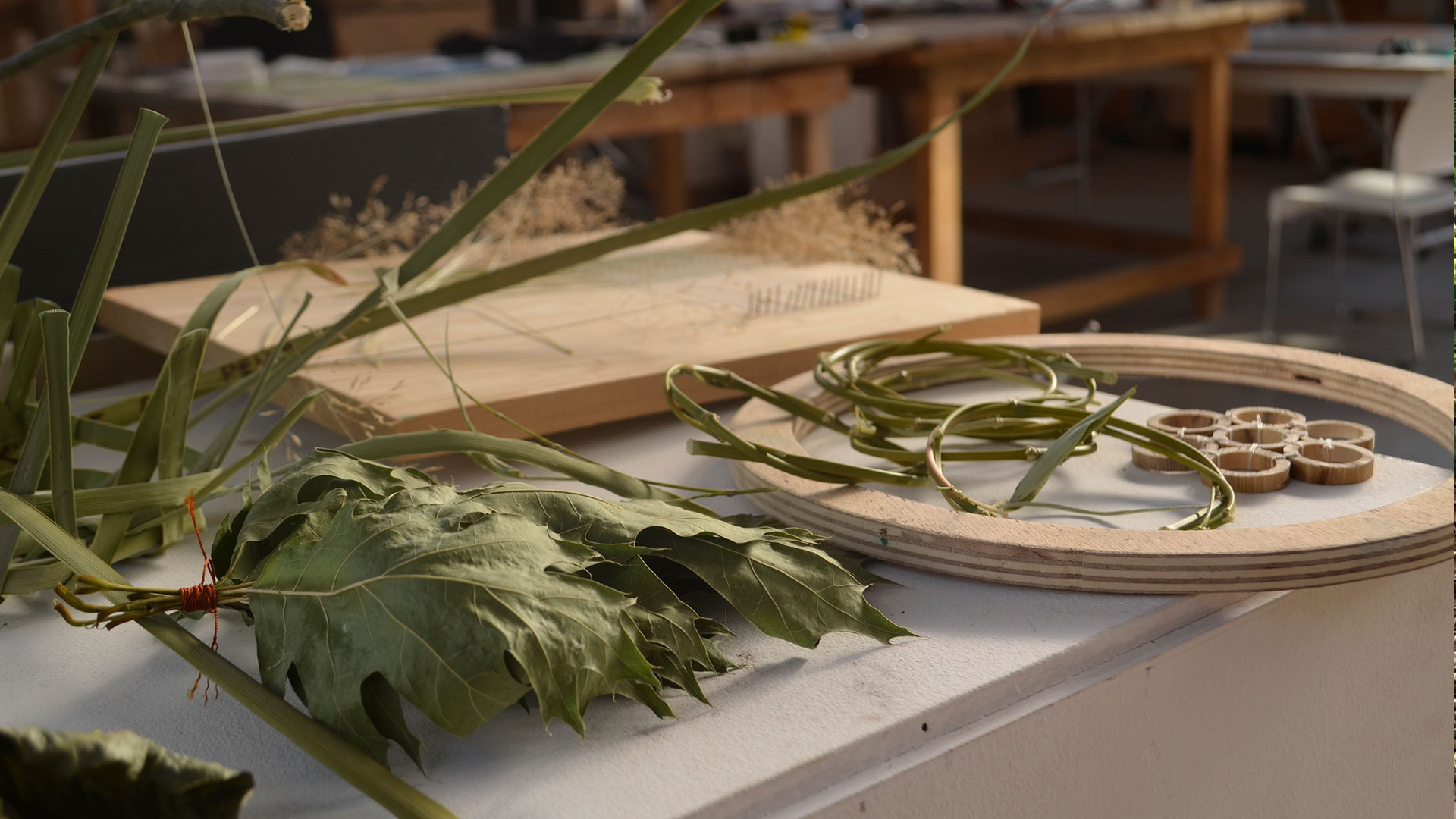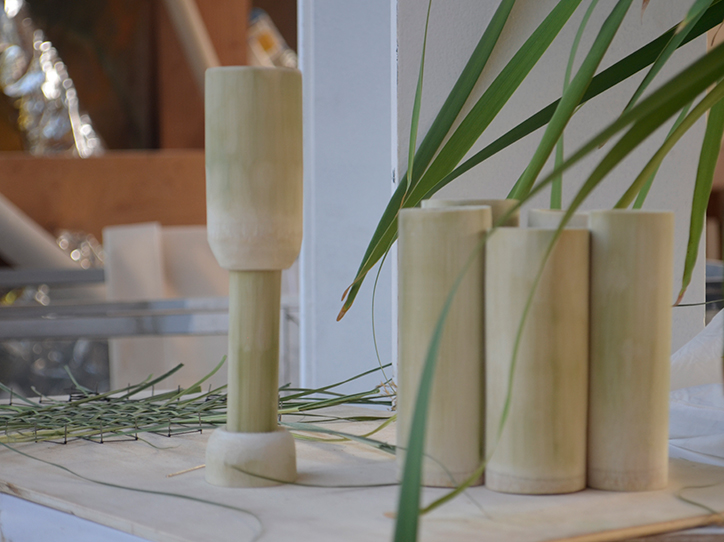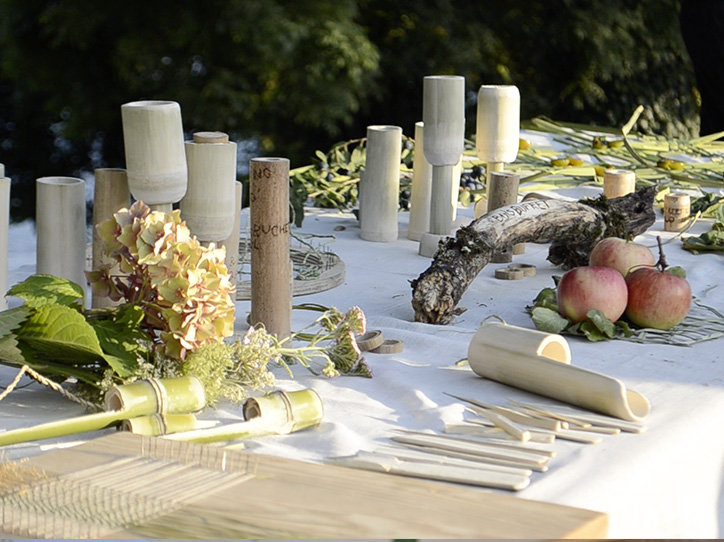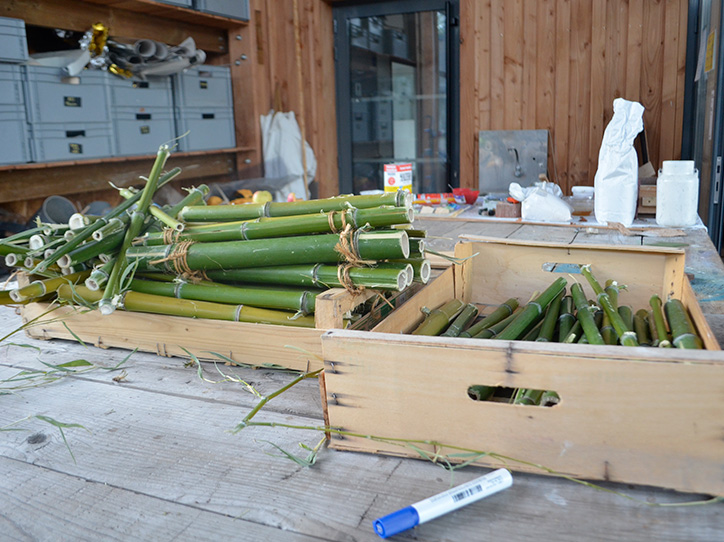BOISBUCHET RESIDENCY AWARD
MARGAUS BALLAGNY AND JEANNE TRESVAUX
The wild house – stay with nature

The artist duo Margaus Ballagny and Jeanne Tresvaux du Fraval were invited to the Boisbuchet estate to question their relationship to nature, in the desire to break with the artifices of production and easy consumption above ground, to focus on their priorities during a one-week residency.
Freshly graduated from Decorative Arts in Paris, the two young artists and designers united their convictions through a food independence project.
Margaus Ballagny, in love with the accuracy of words, redraws language through editing. She has created a publishing house that collects texts, poems, plays and all forms of wild language. Jeanne Tresvaux du Fraval, both designer and artist, questions ecology and consumption, and readdresses these with a critical mind on our Western societies. From collected materials, Jeanne creates installations, objects, editions and clothes from a transversal perspective.



“Boisbuchet is an incredibly inspiring place, with lots of energy, with lots of different influences. We got inspired by the materials we found here, both on the Domaine and in the workshop.”
The two multidisciplinary designers marvel as soon as they come to the Domaine de Boisbuchet and quickly understand the material diversity that this place can offer at the crossroads of water, fields and orchards, conducive to the development of a form of self-sufficient autonomy based on locavorism.
They notice various plants, leaves, fruits (hazelnuts, apples, plums, nettles, purslane, etc.) that they collect and associate in order to set up a lunch made exclusively with foodstuffs collected in the field.
A situation of listening and knowing our environment is thus required. New forms of containers are born. The aesthetic of the practice is no longer dictated by its function, following an industrial aesthetic, but by the materials available at that time, and in this place. These searches for forms and associations give rise to a banquet, installed near the river for the final restitution. Participants are invited to test the objects and therefore the dishes.
The aspect of collective sharing is of significant importance: it is together that we can learn, build, improve. In our urgent environmental situation, it seems necessary to us to react in a dynamic of respect and adaptation to what surrounds us. Not the opposite!
“The aspect of collective sharing is of significant importance: it is together that we can learn, build, improve.”

